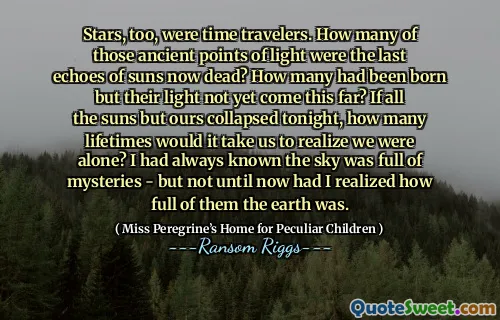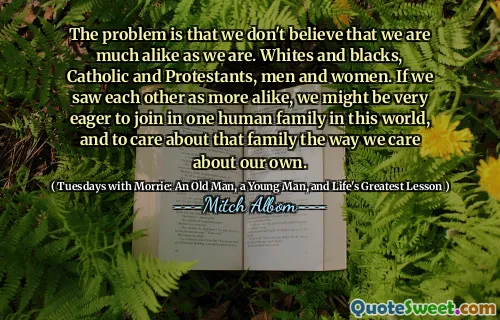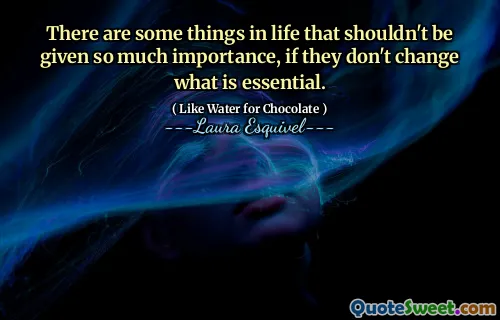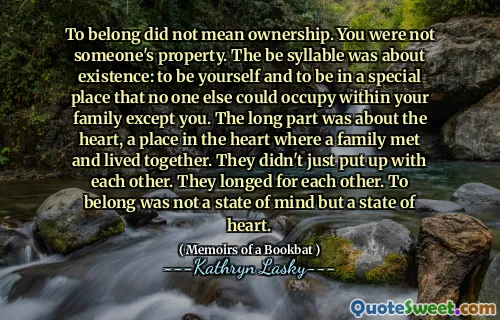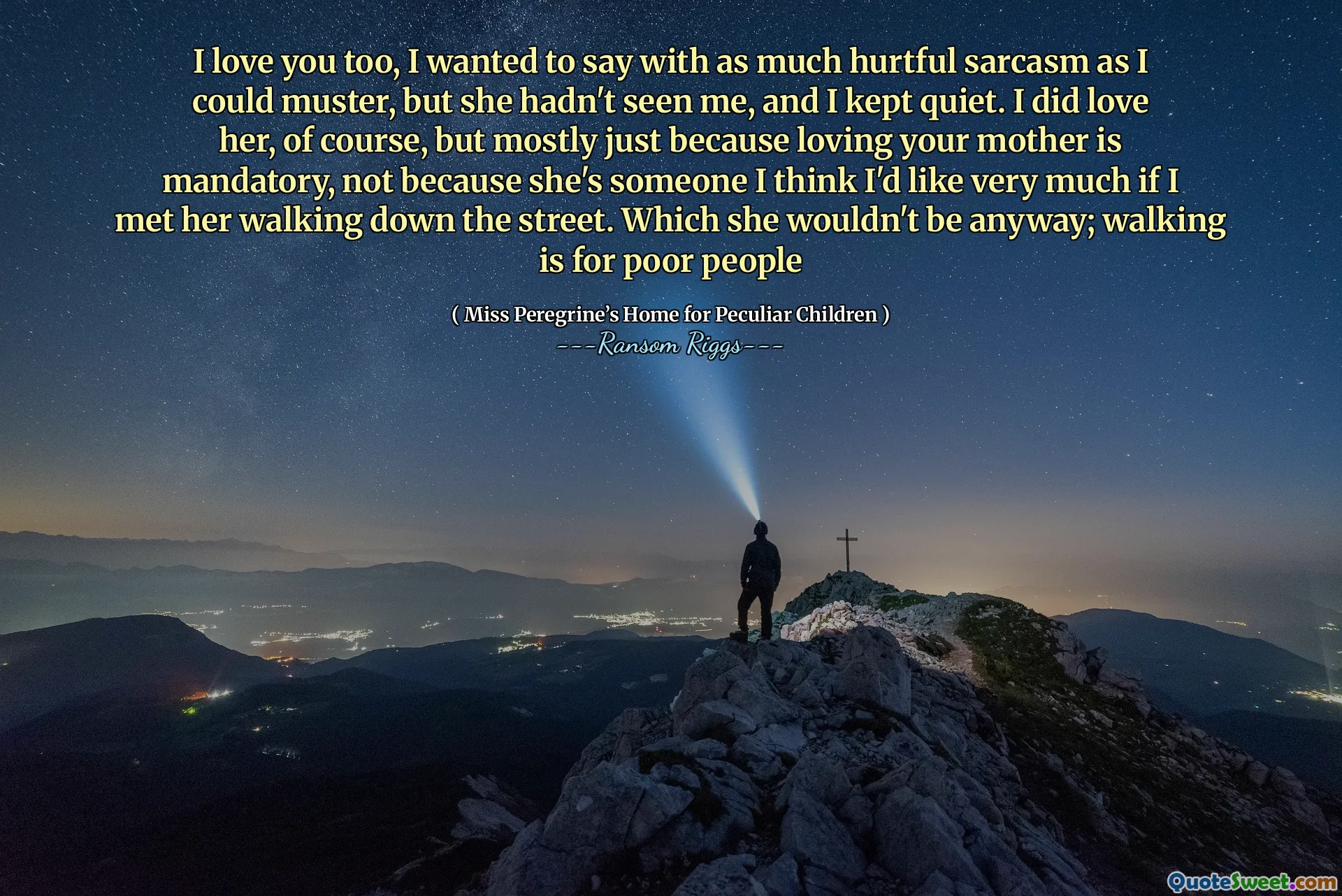
I love you too, I wanted to say with as much hurtful sarcasm as I could muster, but she hadn't seen me, and I kept quiet. I did love her, of course, but mostly just because loving your mother is mandatory, not because she's someone I think I'd like very much if I met her walking down the street. Which she wouldn't be anyway; walking is for poor people
**This quote captures a complex mixture of emotions and societal observations that resonate deeply with many readers. The speaker's tone oscillates between sarcasm, reluctant affection, and a subtle critique of social class. The internal conflict reveals a layered relationship with the mother — one colored by obligation rather than genuine admiration. The sarcasm underscores the emotional distance or dissatisfaction, suggesting a sense of societal or personal disillusionment. The comment about walking being for 'poor people' hints at class distinctions, possibly indicating a feeling of superiority or alienation from ordinary life, which could imply the speaker's perception of social stratification or their own societal status. Furthermore, the act of restraining an impulsive, honest, yet hurtful remark reflects themes of restraint, societal pressure, and the often-complicated nature of familial love. This snippet explores how personal relationships are often filtered through societal expectations and personal biases, which can distort genuine emotions. It also questions the nature of love—whether it stems from authentic feelings or societal duty—and how individuals navigate these complex emotional terrains while maintaining social facades. Overall, the quote encapsulates the internal emotional tug-of-war that many experience within family dynamics, layered with societal commentary that adds depth and nuance to the narrative. It serves as a reflection on the contradictions within human relationships and the subtle ways social class and personal history influence our perceptions and interactions.

